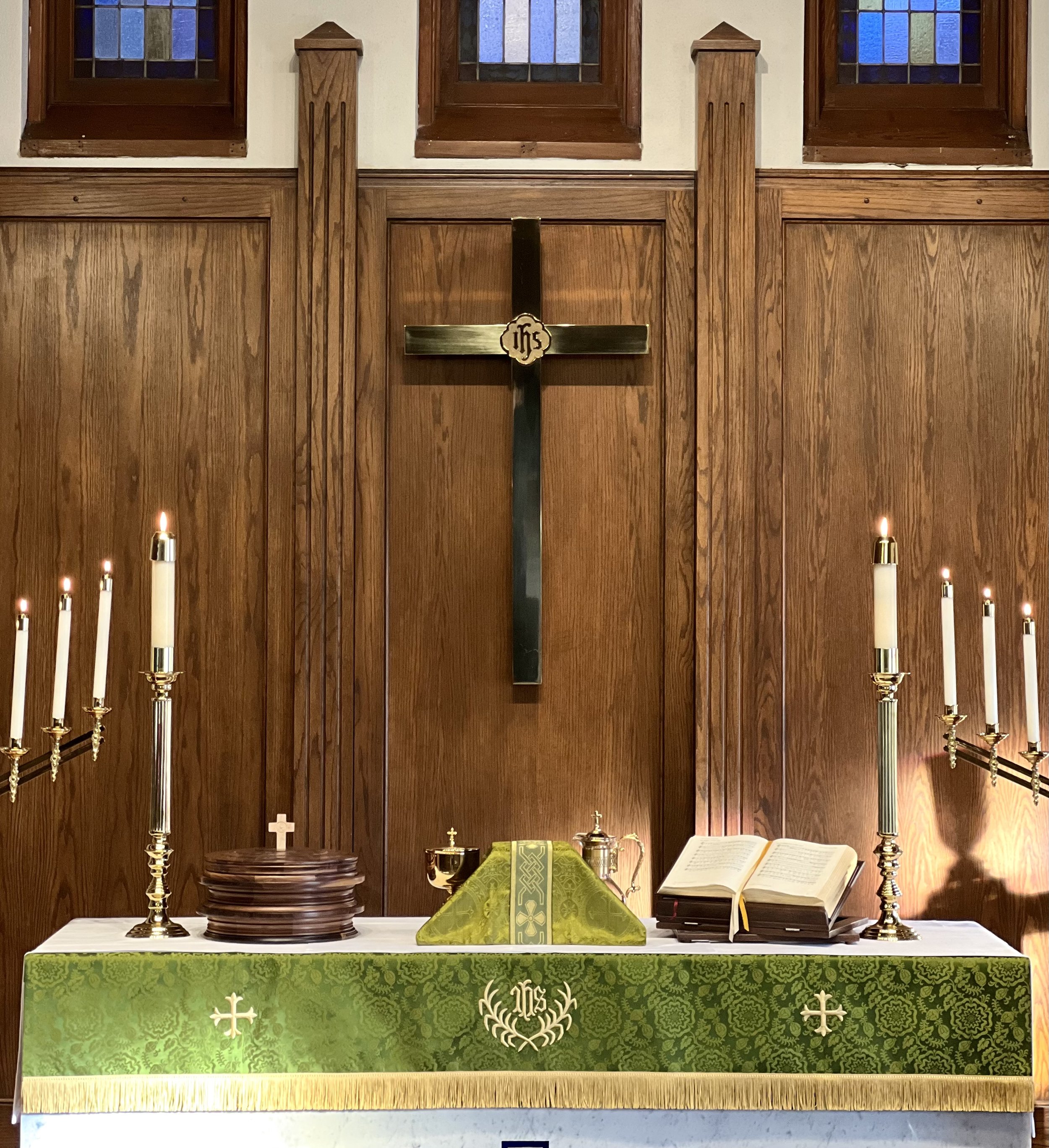Pax Domini is Latin for “the peace of the Lord.” These words can be traced back to Christ Himself as He appeared to the apostles after the resurrection saying, “Peace be with you” (John 20:19-21). Jesus’ words are more than a simple greeting. His word has the power to do what it says, so this proclamation truly bestows peace on the hearer. And this peace is not an emotion or physical sense of calm, but it is the greater reality that Christ has reconciled man to God by taking the consequence of our sin upon Himself. When Jesus appeared to the apostles, He declared that He was their peace with God. So also when the Pax Domini is spoken in the Divine Service, it is not merely a wish or greeting, but a full declaration that the peace which our Lord Jesus Christ has purchased and won by His death and resurrection is present here in the Sacrament and now given to His people.
The pastor may elevate the host and the chalice while intoning the Pax Domini. The elevation shows the congregation precisely where their peace is to be found—in our Lord’s very body and blood in, with, and under the bread and wine. The congregation responds, “Amen,” which means, “Yes, yes, it shall be so” (Small Catechism III.9). In so doing, we join our faith to the declaration of peace, acknowledging Christ’s true presence under the bread and wine for the forgiveness of sins, life, and salvation.
The Pax Domini found a home in the liturgy early on and has been retained for most of Church history, though it has been moved around in the service. Beginning in the late fourth century, it was associated with the Exchange of Peace (or the Kiss of Peace) and placed at the end of the Service of the Word. This emphasized the unity of the faithful as they prepared to receive the Lord’s Supper together. This practice had largely disappeared by the time of the Reformation, though the language of the Pax Domini was retained. Luther sought to shift the primary focus back to the gift of peace from God to us, so he placed it after the Words of Our Lord without the Exchange of Peace. This has been the standard Lutheran practice ever since. This does not downplay the importance of reconciliation with one another but recognizes that the fellowship that we share comes by virtue of our faith in Christ. He is the one who brings us to faith and gives us the gifts in the Sacrament which both strengthen our individual faith and our bonds with one another, being knit together as His Body, the Church. He is our peace, and in Him, we are at peace with one another (Ephesians 2:13-14).


